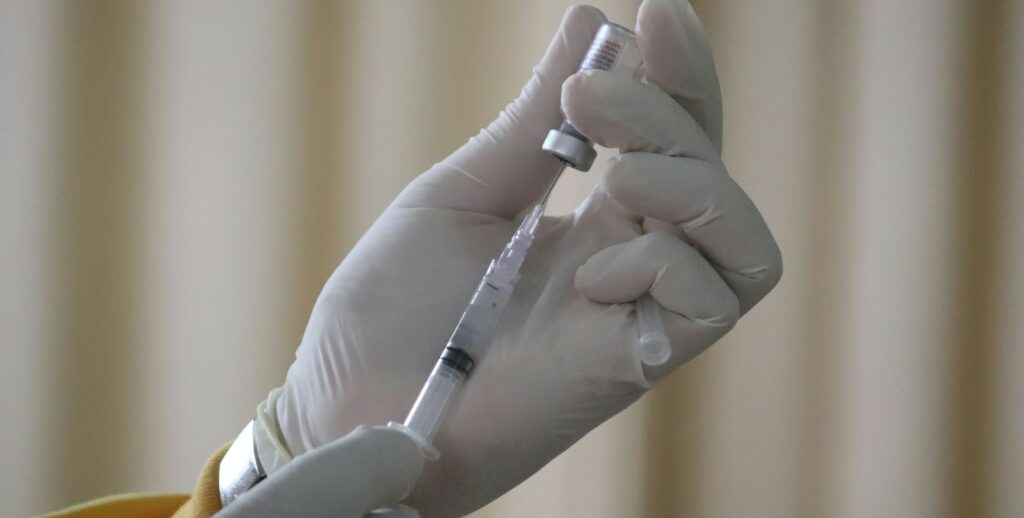Most people know that you can get an STI from sex. But did you know you can also get some STIs in other ways?
Some STIs can indeed be transmitted through non-sexual activity. HIV, for example, can be transmitted through blood-to-blood contact, like sharing needles. Hepatitis A, while sexually transmitted in some cases, is more commonly contracted by eating contaminated food. And Herpes can be passed along through kissing.
HPV is another interesting case when talking about transmission. While most people know that HPV can be transmitted through sex, how else can you get it?
Keep reading to find out.
What is HPV?
The human papillomavirus (HPV) is the most common sexually transmitted infection in the world.
Almost all sexually active people will get a strain of HPV at some point in their lives. Those who are infected rarely experience any symptoms. Most people’s immune systems will effectively fight off the virus within several months to a few years. Infected people usually don’t need to seek out treatment.
However, some HPV infections that have been inoculated near or on the genitals can cause small fleshy protuberances to appear on the initial site of the infection. These are called Genital Warts.
A small number of strains of HPV have been associated with certain cancers, including cervical cancer, anal cancer, penile cancer, oropharyngeal cancer, and other cancers of the head and throat.
The different kinds of HPV
HPV is primarily known to the public as an STI, but the strains of HPV that tend to be sexually transmitted are a small number of total strains of HPV that exist.
There are more than 200 different strains of HPV. All strains of HPV can only live in certain cells called squamous epithelial cells found on the surface of the skin and moist surfaces.
The different strains of HPV are identified by numbers and grouped based on whether they infect the skin (cutaneous) cells or mucosal (genital) cells.
Cutaneous HPV infections are far more common, making up around 150 known strains, while mucosal HPV infections make up about 40.
Strains of cutaneous HPV invade the cells of the skin. They tend to cause warts on the top of the skin in areas such as the hands, feet, arms, and legs. These warts are not the same as Genital Warts, which are caused by strains of mucosal HPV.
This may be where the confusion lies about getting HPV from infected surfaces. While it is possible to get a strain of HPV from touching an infected surface, these strains of HPV are not the strains that cause Genital Warts and cervical and penile cancers.
With all that said, strains of cutaneous HPV, such as HPV 1, 2, 3, 4, 7, and 10, tend to cause skin warts, such as viral warts, plantar warts, mosaic warts, and flat warts. Some strains of HPV can cause skin lesions that are associated with the development of certain types of skin cancer. The development of skin cancer due to HPV is influenced by processes mainly related to the viral proteins that disrupt the function of the skin cells. They promote cancer by interacting with different cellular communication pathways.
How do you get HPV?
You can get mucosal HPV through sexual activity. This includes vaginal sex, anal sex, oral sex, and sharing sex toys. HPV can also be passed on through digital stimulation of the genitals and through kissing.
We also know that HPV likes damaged skin or mucosa. So the long sex lasts or the more traumatic it is (force in penetration, or anal sex) the more likely it is that HPV will manage to seed itself.
Cutaneous HPV can be contracted by touching infected surfaces, especially warm, moist surfaces like the floors of swimming pools or locker rooms. You can also get it from skin-to-skin contact with an infected person.
How do I avoid getting HPV?
For mucosal strains of HPV, you may want to consider getting an HPV vaccine, which will protect you from high-risk strains of HPV. It is not a viable option for everyone but your doctor can advise you. You may also want to consider practising safe sex to lessen the likelihood of any transmission.
If you are a smoker, you may want to consider giving up, as smokers are much more likely to retain HPV and develop associated diseases, like precancerous changes.
For cutaneous HPV, you may want to try the following:
- Avoid direct contact with warts, including your own. Wash your hands carefully after touching a wart.
- Keep your hands and feet dry.
- Wear foot covering like sandals when walking around warm, moist surfaces like swimming pools and locker rooms.
Final thoughts
If you’re worried about a potential HPV infection, click the button below to schedule an STI test at a sexual health clinic near you. Better2Know offers a wide variety of sexual health tests that can detect Australia’s most common STIs.
You can also secure an appointment by calling the number at the top of this page and speaking to a member of our dedicated Patient Services team.

This article has been medically reviewed by Dr. Steve Chapman, 29/04/2025.





